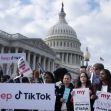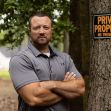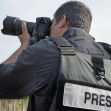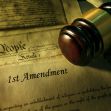Two filmmakers are challenging federal regulations requiring permits and fees to film in national parks, arguing that the rules infringe on free speech protections under the First Amendment.
Alexander Rienzie and Connor Burkesmith filed a lawsuit on Wednesday in a Wyoming federal court, accusing the National Park Service (NPS) of arbitrarily restricting their ability to create commercial content in public spaces. The case follows a similar legal battle over whether filming in national parks constitutes protected free speech.
The filmmakers, represented by the Foundation for Individual Rights and Expression (FIRE), claim the permitting scheme imposes significant barriers on independent creators. The lawsuit was sparked after the duo was denied a permit in August to film a mountain-climbing record attempt in Grand Teton National Park.
Despite using small handheld cameras in publicly accessible areas, Rienzie and Burkesmith say they have refrained from commercializing their footage due to threats of criminal prosecution from the NPS.
“In a time when content creation is vital to independent filmmakers’ livelihoods, these permitting fees are stifling and unfair,” said Burkesmith.
The permitting requirements were established in 2000 to ensure the government receives a "fair return" for commercial activities in national parks, with fees varying based on production size, equipment used, and duration of the shoot.
The lawsuit contends that the current permitting framework is both arbitrary and discriminatory, creating unfair distinctions between commercial filmmakers, tourists, and journalists who may capture identical footage using similar equipment. Under the existing regulations, tourists recording video for personal use are not required to obtain permits, while journalists engaged in news-gathering activities are also exempt. In contrast, filmmakers producing content for commercial purposes must secure permits and pay fees, regardless of the similarity in their filming methods or equipment.
The plaintiffs argue that these distinctions allow park officials to apply the rules inconsistently, leading to decisions often based on subjective judgments about the intended purpose of the content rather than clear, objective criteria. This, they claim, undermines fairness and creates unnecessary barriers for independent creators.
The filmmakers argue the rules constitute content-based restrictions, which are generally disfavored under First Amendment jurisprudence. They further claim the permitting process violates the Fifth Amendment by failing to provide clear standards, leaving decisions at the discretion of park officials.
The case draws parallels to a prior legal challenge by indie director Gordon Price, who sued the government in 2019 after being cited for filming without a permit in Virginia’s Yorktown Battlefield. While Price initially won at the district court level, an appeals court ruled that filmmaking in national parks was not protected by the First Amendment.
The filmmakers’ complaint also criticizes NPS rules for excluding still photography and news-gathering from permit requirements, calling the framework inconsistent. “If you have a right to be there, you have a right to film there,” said FIRE attorney Bob Corn-Revere.
The lawsuit has garnered support from trade groups, including the National Press Photographers Association (NPPA), which is a co-plaintiff. NPPA President Carey Wagner called the NPS’s permitting rules “a long-standing affront to photographers’ constitutional rights.”
The National Park Service has yet to respond to the lawsuit. The case seeks a court ruling declaring the permitting requirements unconstitutional and affirming that filming in national parks is a protected First Amendment activity.
“If the government can tax or restrict such basic freedoms,” Corn-Revere said, “then the rights guaranteed to all Americans are on shaky ground.”






